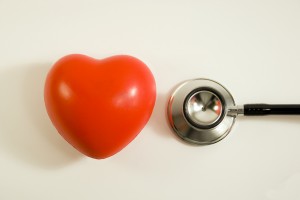The Shocking Ways Scientists Show Romance
 Ever wondered how scientists declare their love? Well, check out some data that was shared in the British newspaper, “The Guardian”….
Ever wondered how scientists declare their love? Well, check out some data that was shared in the British newspaper, “The Guardian”….
j
Even back in history, scientists worked hard to pursue their love interests:
In a classic piece of work by Jacques-Louis David, an influential French neoclassical painter, Antoine-Laurent de Lavoisier, the “father of modern chemistry” was shown gazing lovingly at his wife and co-worker, Marie-Anne, over a table that was laden, not with candles, but with the symbols of a shared love of chemistry.
Then there was the 18th century German professor, Georg Matthias Bose, who developed early theories of electricity. He would ask a lady to stand on an insulated stool whilst her body was charged with electricity by a hidden operator. He would then introduce an unsuspecting gentleman to kiss her. Not surprisingly, sparks would fly.
And how about the 19th century American, Joseph Henry, a professor and pioneer of the first electromagnet? Whilst studying inductance, he constructed a magnetic relay that connected his lab at Princeton University to his home. Henry used this device to send waves of love to his wife Harriet, and, more importantly, to send her his lunch order. This pioneering work eventually led to the invention of the telegraph.
l
Let’s fast forward to the 21st century to see if the age of chivalry is dead:
Researcher in nanotechnology at Purdue University, Sahil M. Bansal, admits that he uses his hi-tech skills to make gifts for love interests. In his production of nanoscale circuits, tiny gold patterns are dabbed onto silicon wafers. He puts his leftover wafers to good use, though, by inscribing them in gold with nanoscale poetry. Apparently it’s never failed him.
And, naturally, no self-respecting report on romance would be complete without some quotes from the Twitterverse:
A lecturer in organic chemistry at the University of East Anglia, @S_J_Lancaster, tweeted: “Valentine, I could never Bohr of you”. And later: “Say silsesquioxane again, the way I like it.”
Then there was @Sci_ents of the University of Hull, who announced: “I said I liked her bosons and then she lepton me”.
And finally, chemistry student, @simplecoffee, of the University of Delhi, declared: “You drown me in dopamine. May I be your alpha carbon?”
h
So, the moral of this story? You should definitely think carefully before taking advice on romance from a scientist….
j
j
Image credit imelenchon @morgueFile